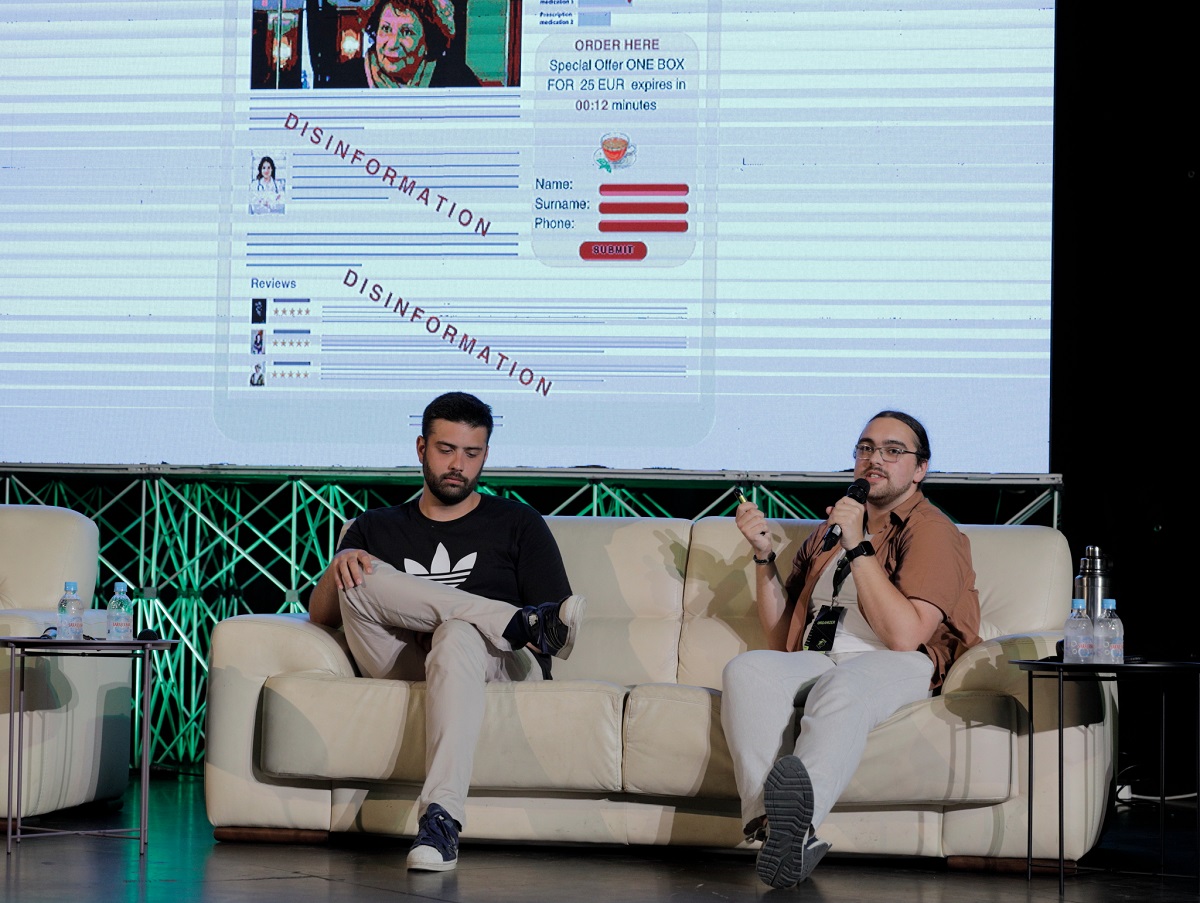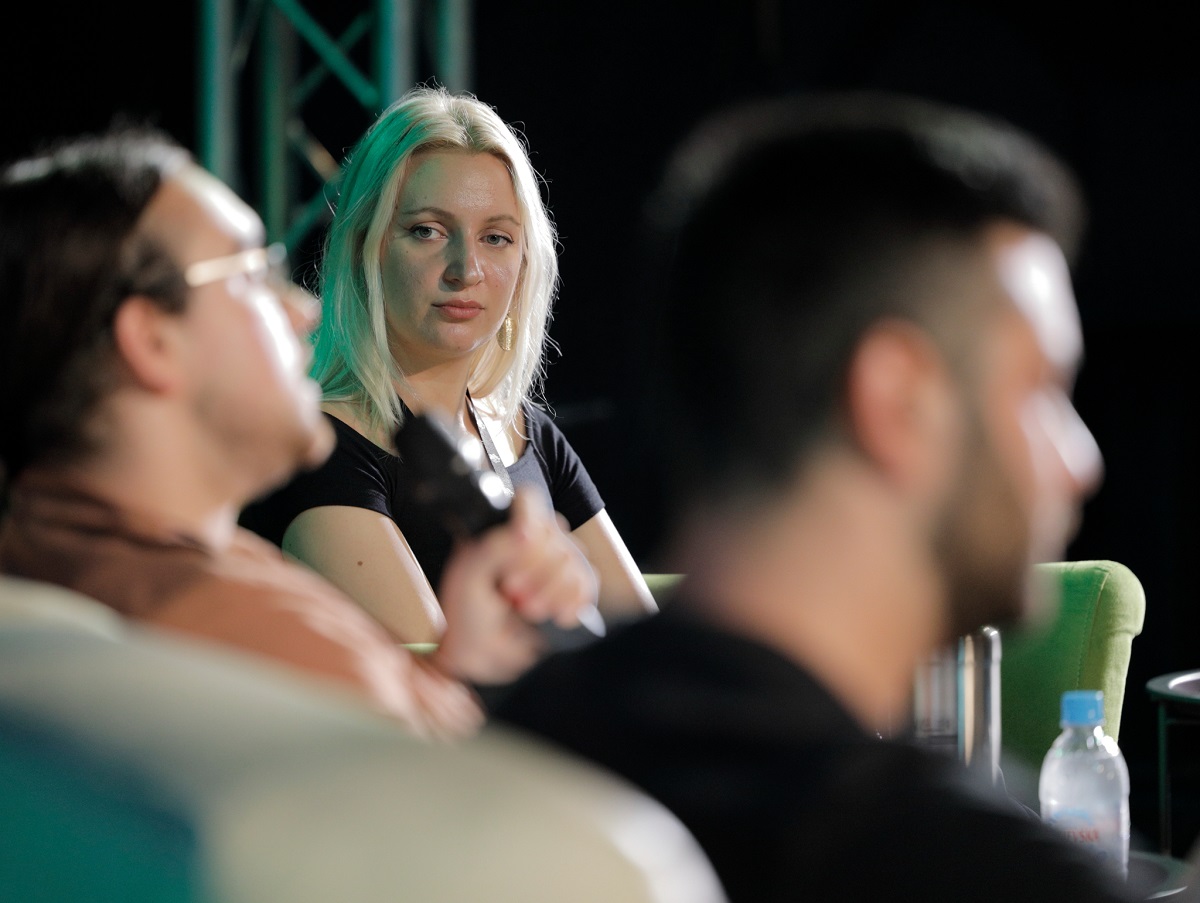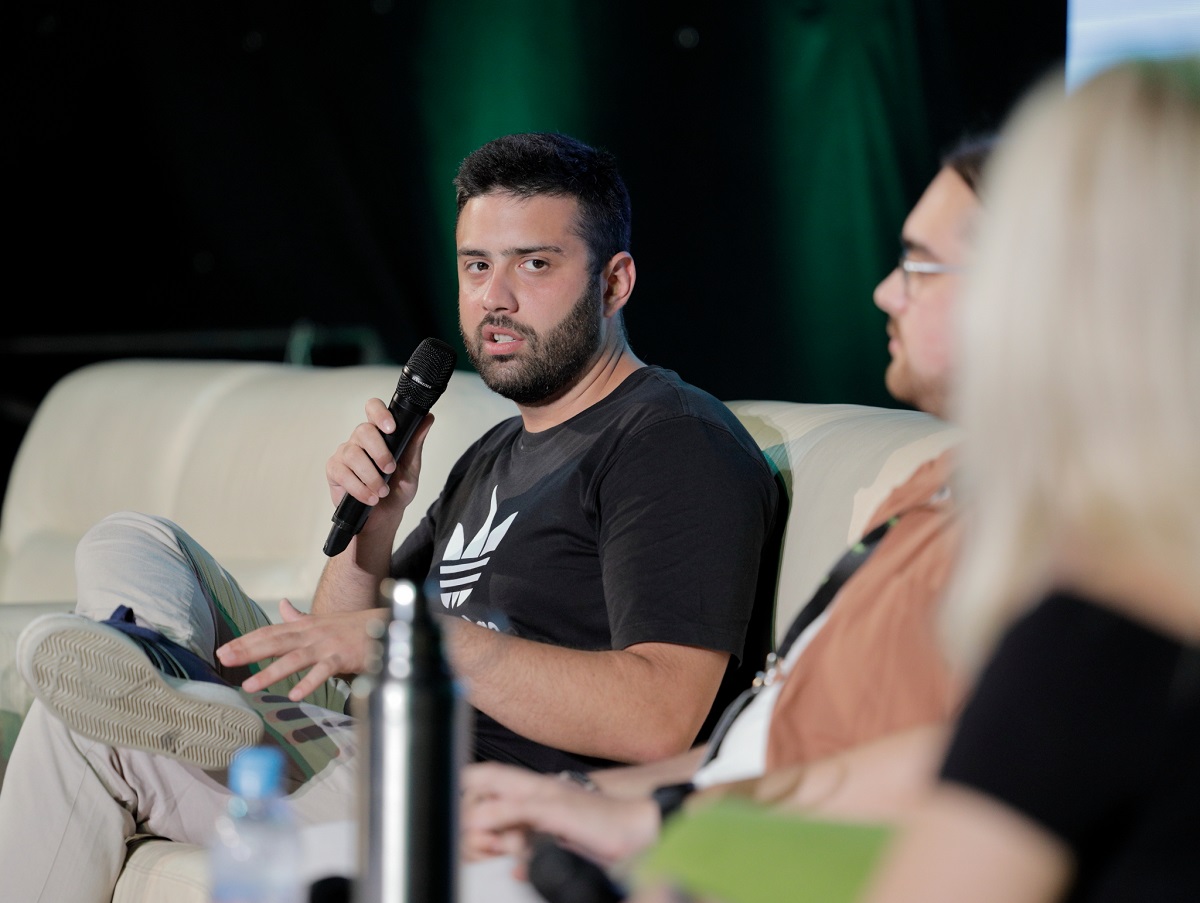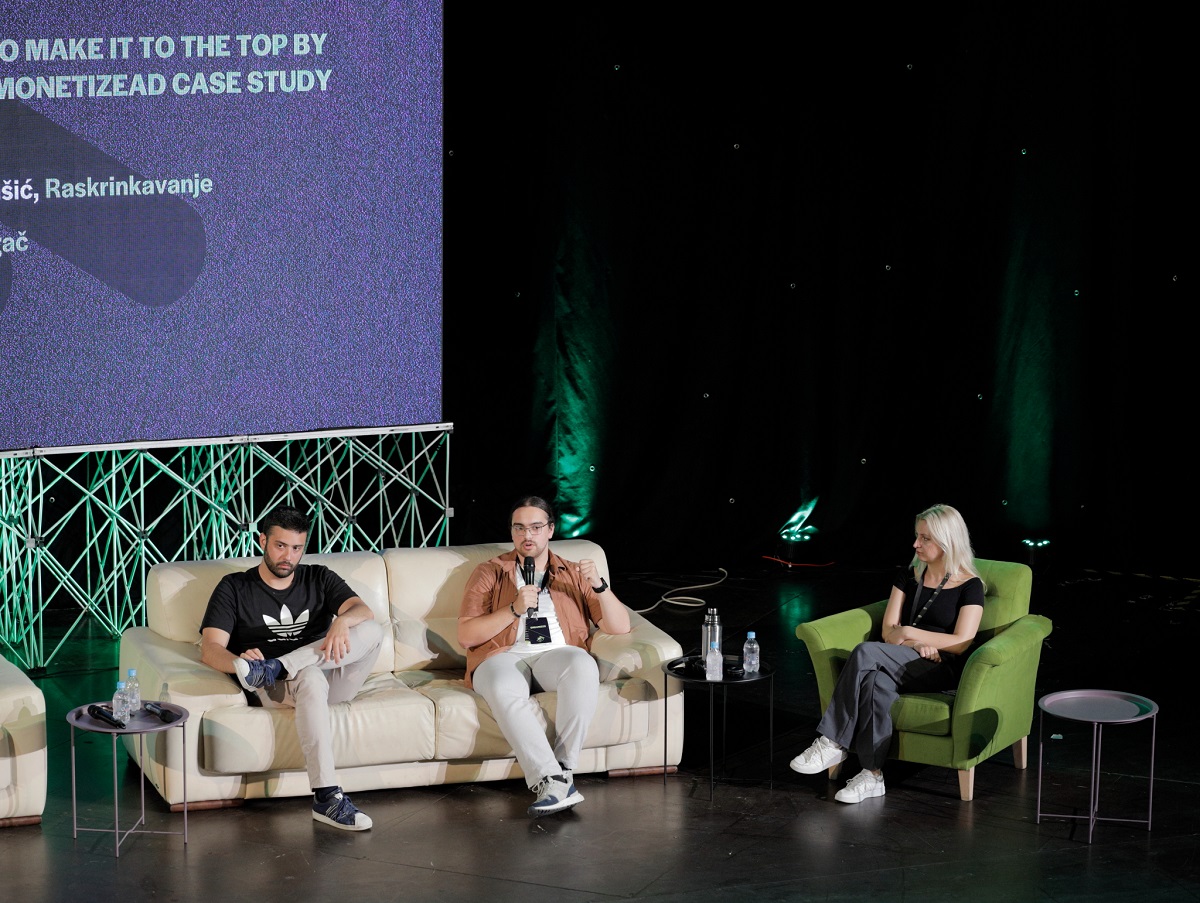Showcase track: Online hoaxes – MonetizeAd case study
On the second day of the Point 12 Conference, Raskrinkavanje and FakeNews Tragač put in front of the audience an impactful story on a major advertising company and its role in online scams.

Can you imagine yourself reading an article and bumping into the section with your photo in it, and words attached to you that you never said? Imagine that, moreover, it’s not even a “real” article or section, but some sort of an obscure “advertising section” that mimics real websites. The content of that “section” revolves around the sale of various “miraculous” products that can benefit people’s health, and you are described as one of the “satisfied customers”. Well, you don’t even have to imagine it, because it is possible in the world of online hoaxes, where this kind of “advertising” practice is only a part of a widespread network related to online frauds.
One of the most impactful stories on these practices was brought by Bosnian fact-checking platform Raskrinkavanje and FakeNews Tragač from Novi Sad, Serbia, in 2021. The investigation that lasted almost for a year tells the story of MonetizeAd, a Sarajevo-based company, the main player in this fraudulent game.
Nerma Šehović-Kašić, a journalist and a researcher at fact-checking platform Raskrinkavanje, moderated the panel dedicated to this matter during the Point 12 Conference.

Amar Karađuz, a researcher and author at Raskrinkavanje, and one of the authors on MonetizeAd scams articles, gave an insightful presentation as a way to simplify this very complex and very detailed story about the fraud that two fact-checking platforms have analyzed. He described how this manipulative sale of so-called health products looks like in the form of an article, noting these texts are not actually articles, but websites with URL, containing catchy titles, fake customer reviews, graphics showing the products are more efficient compared to any other prescription drug, online form where you can order that product etc. The range of “healing” products on these websites is diverse, hence the list of conditions treated by them.
“So, it’s possible to “reverse” your diabetes, to get rid of the parasites in your body, to cure sexual impotence in man, or get rid of the boring medicine that you need to take for life to cure hypertension”, Amar described some of the products’ “healing benefits”.
Abuse of identities
Part of these online scams is also the abuse of real people’s identities for the purpose of product promotion.
“Can you just imagine you’re reading an article, and come across a section to find your photo and your name being put in there. That happened to one of our readers, an actress from Bosnia and Herzegovina. She came across one of those articles somewhere on the internet, and the article claimed she gave an interview on how that medical product helped her get rid of parasites, and that she ended up refusing to take the medication prescribed by her doctor”, Amar recalled.
Raskrinkavanje and FakeNews Tragač did two stories. The first was a fact-checking article on all of the types of disinformation they found on these websites. The second article was a more investigative part of the entire story, where they found out these websites are connected to an advertising company from Sarajevo.
“We discovered there are two connected companies. One company, based in East Sarajevo, is involved in producing those products, and it is connected to an advertising company from Sarajevo. Both of them are actually one company – two companies under the same roof, with the same owners. We made a connection by finding the domain registration details about these websites, and we connected that directly to the company. The name of the advertising company is MonetizeAd, and the name of the company that is producing these products is LimitedCharm”, Amar explained.

Ivan Subotić, the deputy editor at FakeNews Tragač from Novi Sad, and one of the authors of MonetizeAd analysis, showed the map of Europe, with countries of Western Balkans and Turkey marked as the countries where they found separate branches of MonetizeAd company.
“Each of those companies have some sort of a call center. They’re functioning in order to put these scams online, and then wait for their victims – the citizens – to give their information on the website. After that, someone from the call center contacts them and asks them how much of some kind of tea, or some other “medication”, they want to buy. They will try to convince them to buy even more, targeting mostly elderly and sick people, Ivan said, stressing that the amount of the money earned from these online scams is immense, “like about 25 million euros in selling these products last year”.
Journalists also discovered these scams in other European countries, like Spain, Italy, Austria, Hungary, or Germany, but also in countries of Eastern Europe, like Russia, Ukraine, Belarus and Moldova, where, according to Ivan, media literacy is low, as in the Balkan countries.
Following articles on MonetizeAd online scams, the company filed a lawsuit against Amar Karađuz and some of his colleagues.
“They claimed everything we published is incorrect, that we’ve provided no evidence for this, that we committed an act of defamation against the company, and that we need to remove those articles from our websites; otherwise, they will file a lawsuit against us. So, since they didn’t provide any evidence that any of our claims are incorrect, we didn’t remove the article, and they filed the lawsuit”, Amar said.
SLAPP lawsuits
The really interesting part with this lawsuit is the amount of the money MonetizeAd asked – 600,000 euros in the first version of the lawsuit, and the renewed amount of around 500,000 euros in damages in the second version of the lawsuit.
“This was a clear example of a SLAPP lawsuit. They wanted us to remove any trace of anything negatively written, even though those articles are not reports, they’re pure fact-checks. For the first time, these articles put information to the audience, to the public, that this company is doing something that is not acceptable”, he stressed out.

The lawsuit was dismissed in the first-instance court. The lawsuit is now at the second-instance Cantonal Court in Sarajevo.
Even though FakeNews Tragač didn’t remove articles on MonetizeAd from their website as well, they experienced, as Ivan noted, a slightly different situation regarding the “warning” they received from this company – resulting in no filed lawsuit at the end.
In final remarks, participants gave some advice on how people can protect themselves from online scams in general, noting the users are maybe more aware of this type of content now and that they are reaching out to fact-checkers. But the lack of information literacy, as Amar noted, still can be a problem, especially when it comes to the older people, who are looking for a cure for their diseases in these ads. According to him, one of the solutions is the constant conversation with older people in order to provide them with some useful information on online scams and telling them these “miraculous” products are not “miraculous” after all.
He also warned we have to look at the media landscape here in the Balkans with the aim of understanding why these scams are so successful.
“One of the explanations is that the companies collaborate a lot with the media that are trying to monetize their online content and earn money. This escalated during the pandemic, when many media outlets were shut down or on the verge of bankruptcy, so they needed some source of money and it came from these ads”, Amar recalled.
Ivan noted that institutions in Serbia are not interested in dealing with these kinds of scams, because it’s very hard to find out who is behind them.
“But what we can do is to talk about media literacy, about fact-checking. We are moving slowly, but we are doing something”, Ivan concluded in an optimistic manner.
Author: Aldijana Zorlak